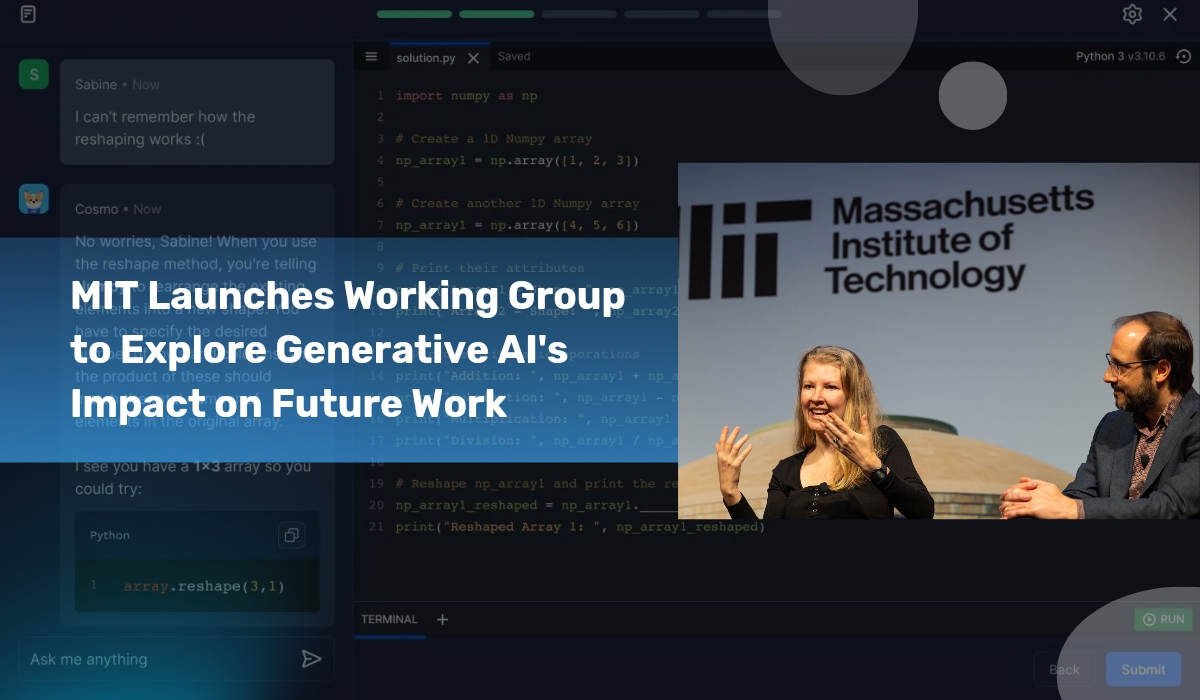
A surge in the use of generative artificial intelligence (AI) tools across various domains has prompted MIT to embark on a groundbreaking exploration into the transformative potential of these technologies. From students honing essays to engineers coding and call center operators assisting customers, the widespread experimentation has ignited a host of inquiries at MIT regarding the profound implications of these tools on our professional and personal lives.
With uncertainties looming about the role of generative AI in reshaping job landscapes and its potential to render certain skills obsolete, MIT is taking proactive steps to demystify these questions. Spearheading this effort is the newly formed Working Group on Generative AI and the Work of the Future, comprising 25 companies, nonprofits, MIT faculty, and students. This collaborative endeavor aims to collect firsthand data on the utilization of generative AI tools and their impact on workers, striving to unlock insights into leveraging these technologies for positive societal outcomes.
Under the leadership of MIT's Industrial Performance Center (IPC), directed by Ben Armstrong, alongside professors Julie Shah and Kate Kellogg, the working group has commenced its mission. Through meticulous research, dialogue, and collaboration, the group seeks to chart a path towards harnessing generative AI for enhanced job performance while mitigating potential adverse effects. Supported by funding from Google.org's Community Grants Fund, this initiative underscores MIT's commitment to driving innovation for societal benefit and shaping the future of work in the digital age.